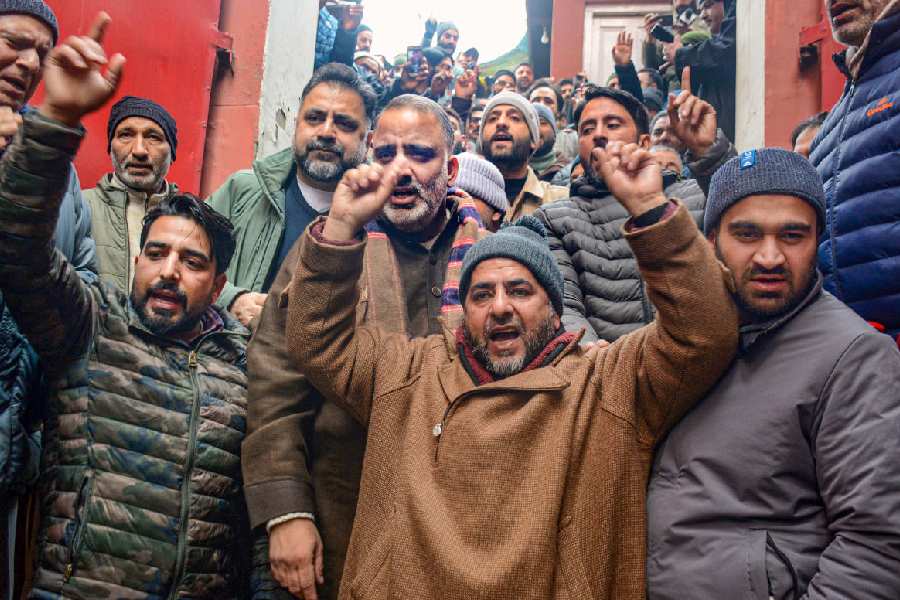The army’s probe into alleged custodial killings of three Muslim Gujjars in Jammu and Kashmir’s Poonch remains unresolved despite a four-week deadline set by the higher-ups, with veterans expressing concern over delayed justice and accountability.
Sources in the army headquarters in Delhi on Friday said the high-level probe into the alleged torture and custody deaths of the three civilians on December 22 was
still “underway”.
“The probe into the alleged killings is likely to take some more time,” a senior army official told this newspaper.
After the incident triggered outrage and protests, the Centre immediately removed three officers, including the commander of a Rashtriya Rifles brigade, pending inquiry.
Asked about the four-week deadline set by the army brass to complete the probe, the army official declined to comment.
Another official, however, said the army was not well-equipped to play a policing role. “There are lots of issues in the case that need proper investigation and that’s the reason why it is taking time.”
Speaking to The Telegraph, a former lieutenant general said such serious cases of alleged human rights violations should have been dealt with expeditiously in a time-bound manner to ensure strict disciplinary action was taken against officers
found guilty.
“In this particular case, the army had swiftly removed three officers, including the brigadier-in-charge in Poonch district pending an inquiry. What is required is swift action to save the army’s image,” the retired lieutenant general said, adding: “The army had already identified some officers for their suspicious role in the case. The top brass had said the probe would be completed in a time-bound manner within four weeks. Why is there a delay now?”
A former brigadier said: “Such incidents give the army a bad name. In a bid to save its face, the army should have completed its probe within a time-bound manner to ensure justice. The failure to do so is likely to generate adverse publicity for the army as an organisation and also on its system of investigation and justice.”
The army allegedly tortured eight men from a Poonch village — three of whom died — to avenge a militant ambush that had killed four soldiers in the area.
As protests erupted against the alleged custody killings, defence minister Rajnath Singh had rushed to Jammu and met the bereaved families and promised them justice. He had also met soldiers, advised them to maintain “professional” standards and reminded them that they had a duty not only to defend the nation but also to win the hearts of its people.
Last month, army chief General Manoj Pande said commanders and troops had been instructed to “respect human rights” and there would be “zero tolerance” for any violation. The army had also adopted the village where the three slain men lived.
The Jammu and Kashmir police had registered a murder case against unidentified persons over the deaths.
The Rashtriya Rifles, which is in the eye of the storm, is the army’s elite counter-insurgency force in Kashmir and was raised in 1990. Its personnel are provided by the army on deputation.











